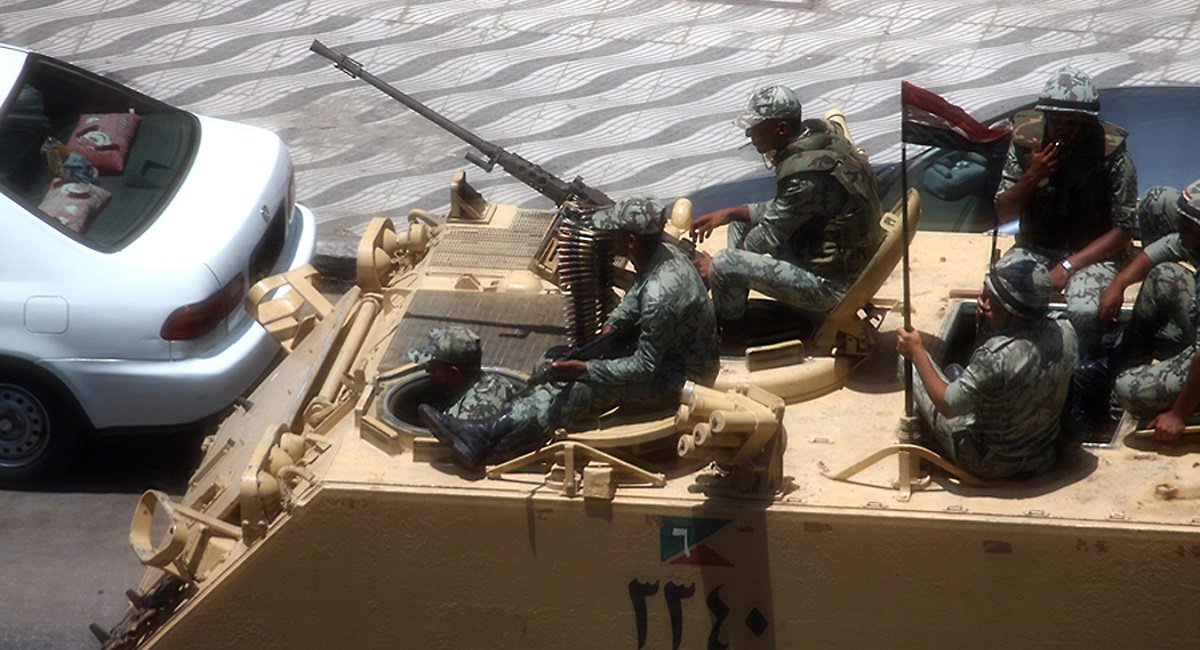

Photo by Aschevogel – Creative Commons
A March 2021 essay collection from the Malcolm H. Kerr Carnegie Middle East Center examines the trajectory of military politics in Algeria, Egypt, Libya, and Sudan.
Sustained protests created an unexpected opening for political transition in Sudan and Algeria in 2019. The acquiescence of the armed forces in the ouster of the long-term presidents they had previously supported reinforced hopes for a new era of pluralist, democratic politics. Exploitation of the coronavirus pandemic during 2020 to entrench authoritarian rule has tempered such expectations, while the intensification of geopolitical rivalries has revived the salience of North African militaries. The initial promise of political change has receded in Algeria, and may yet do the same in Sudan, potentially putting both on the trajectory of Egypt since its 2013 coup d’état and Libya since the start of its civil war in 2014.
The armed forces have been a central political player and the real locus of power in Algeria, Egypt, Libya, and Sudan for sixty years, but the turbulence of the last decade prompts a reexamination of this power. Will the scale of social crisis and structural economic challenges prompt the armed forces to seek an exit from governing? In Egypt, few political or social interlocutors remain with whom a military withdrawal can be negotiated, limiting the scope for orderly transition. A fragile political settlement leaves Libya overshadowed by the continued salience of armed actors and the prospect of the return of strongman rule by generals or military-backed civilians. In Algeria and Sudan, conversely, political parties and civil society organizations are pivotal actors, but are they capable of preventing yet another restoration of military rule, whether direct or indirect?
Authoritarian Trajectories
Based on the trajectory of military politics in these four countries, a March 2021 essay collection from the Malcolm H. Kerr Carnegie Middle East Center examines the prospects for genuine political transition. Risa Brooks observes that, given the challenges facing Egypt, President Abdel Fattah al-Sisi has upended the basic formula of Egyptian civil-military relations and increased his personalist control over the military. Anas al-Gomati notes that the plan for military unification that was included in Libya’s October 2020 permanent ceasefire agreement legitimizes the two-tiered military of the Qaddafi era, dimming the prospects for peace and stable civil-military relations. Belkacem Elguettaa finds that the Algerian armed forces’ treatment of the Hirak protest movement and the rush to hold presidential elections undermines military leaders’ credibility as reliable arbiters of political crises between Algerian protesters and ruling civilian elites. Samuel Ramani writes that elements of Sudan’s pretransition military are using political, economic, and international advantages to consolidate long-term influence.
The military in each of these four North African countries is still years away from relinquishing its preeminent position in the state and politics. These militaries are caught in a prisoner’s dilemma, in which acting in their own self interest cannot produce optimal outcomes. Powerful military actors have no hope of navigating the immense economic and social challenges that generated mass protest movements in 2011 and 2019 and that loom larger than ever in the wake of the coronavirus pandemic. These militaries have helped perpetuate the conditions generating these crises but continue to block meaningful dialogue and impede reforms that could ameliorate the situation, seeing reforms as a threat to their political preeminence and autonomy.
And yet, only the military can challenge the reproduction of authoritarian power. Economic and financial contraction in the post-coronavirus era could erode the material rewards and understandings that previously underpinned its stake in the ruling order. In this case, the military may be forced to enter unfamiliar terrain, as it has to negotiate with other political and social actors even as it seeks to maintain its privileged status. But a fundamental shift in the mode of governing that involves even a partial military withdrawal is not yet in the offing. For now, the military remains a key partner of ruling elites that employ a mix of naked violence, narrow nationalism, and social exclusion to foreclose negotiation.
Yezid Sayigh is senior fellow at the Malcolm H. Kerr Carnegie Middle East Center and director of the Program on Civil-Military Relations in Arab States.



